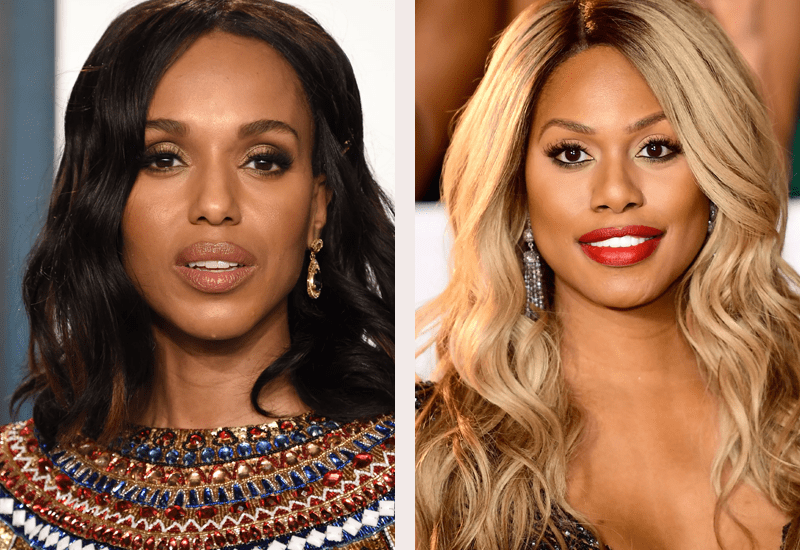Kerry Washington and Laverne Cox Discuss Creating Room For Inclusivity On Set

Kerry Washington and Laverne Cox are working hard to provide opportunities for underrepresented artists on-screen and behind the scenes. In conversation with Variety’s Angelique Jackson, Cox and Washington describe how becoming producers allowed them to have control over their work, which allows for more diversity and inclusion.
“The question for me has always been, ‘How do we keep the door open? How do we open a window?” said Cox. “How do we just let the whole wall come down, so that more people can get in?’ That is the challenge of being a first something.”
Producing has provided the actresses with more freedom than ever before. “There’s something about the agency — like, I get to control my body, myself, my story — that is so necessary to us feeling like the women we were meant to be,” explained Washington. “Our history [as Black women], particularly in this country but all over the diaspora, is so much about our bodies belonging to other people. So to be able to really have agency to call the shots, to be able to be the storytellers, is very empowering.”
Cox, who produced “Disclosure,” is bringing opportunities to other trans people in the industry, which is highly necessary for accurately telling their stories. “Everyone in our film works in the business and often are the only trans people on set. So many of them talked about walking onto our set and everywhere they looked there was a trans person. And that was so integral in telling the story of transgender representation on-screen,” she said.
Eliminating being the only underrepresented individual in the room is crucial. “When you’re the “only” on set whether it’s the only woman, the only Black person, the only Black woman, the only trans woman, you have all of this additional weight and responsibility to be speaking for your race, speaking for your people, speaking for your community, as opposed to being like an artist who also has the shared experience of belonging to that community,” said Washington. In ‘Little Fires Everywhere,’ she experienced the power of inclusivity and how it helped her to gain multiple perspectives of what it means to be a Black mother––not excluding her own experiences in motherhood, but adding layers and depth from different points of view. Read the full interview on Variety.
No Comments